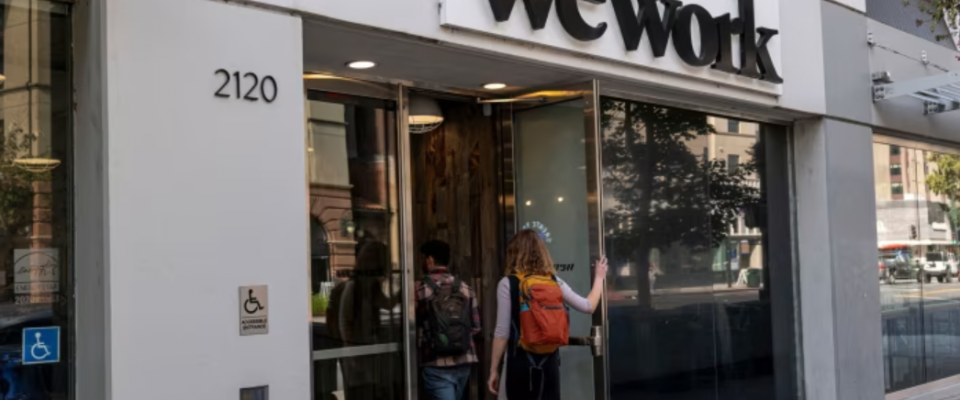WeWork Files for Bankruptcy Amid Glut of Empty Offices
WeWork, the real estate company that offered start-ups and individuals sleek quarters to pursue their entrepreneurial dreams, filed for bankruptcy protection in the United States on Monday after years of struggling to find its footing.
Comprehensive Reorganization
The company filed for Chapter 11 bankruptcy protection in New Jersey, as part of what it described as a “comprehensive reorganization” of its business.
The company said creditors holding 92 percent of its secured debt had agreed on a restructuring plan that would include reducing its portfolio of office leases.
“As part of today’s filing, WeWork is requesting the ability to reject the leases of certain locations, which are largely nonoperational, and all affected members have received advanced notice,” the company said in a statement.
In September, WeWork said it would begin to renegotiate all its leases and exit certain locations. On its website, it lists 660 locations in 37 countries, down from the 764 locations in 38 countries it had about two years earlier. The company was renting nearly 20 million square feet of office space in June, more than any other company in the United States. Monday’s actions will not affect WeWork franchises outside the United States and Canada, the company said.
Commercial Real Estate
WeWork’s demise is a blow for landlords who have leased a large proportion of their space to the company. Many landlords have accepted lower rents from WeWork in recent years, and some are struggling to make payments on the debt tied to their buildings. Since the pandemic, fewer employees have been going into the office, causing one of the worst crunches in commercial real estate in decades.
WeWork has been sending distress signals for months. In March, it reached a deal with a major investor, the Japanese technology conglomerate SoftBank, and others to significantly reduce its debt and secure new financing. Still, it said in August that there was “substantial doubt” about its ability to stay in business. And last month, WeWork said it would miss interest payments totaling $95 million — a move intended to help it negotiate with its lenders as it sought to cut costs with its landlords. After a 30-day grace period, the company reached a deal with creditors for a seven-day forbearance, which expires Tuesday.
Less Than $45 Million
WeWork’s stock has fallen more than 98 percent since the start of the year, and the company was valued at less than $45 million as of Friday. At its peak, in January 2019, the company was worth around $47 billion.
About E. J. McKay
E.J.McKay is a Shanghai-headquartered investment bank with a special focus on mergers & acquisitions. We are one of the most long standing independent investment banks in China, with core business of mergers & acquisitions and financing advisory.


